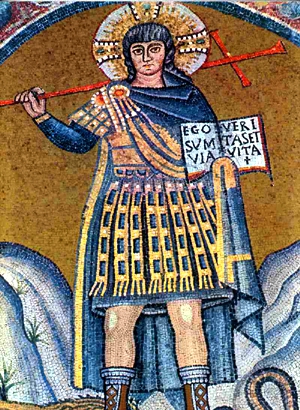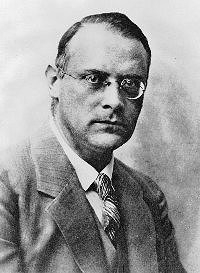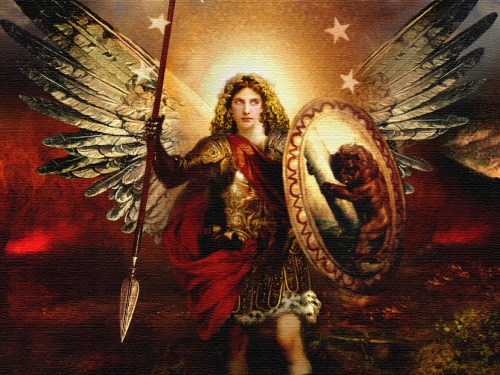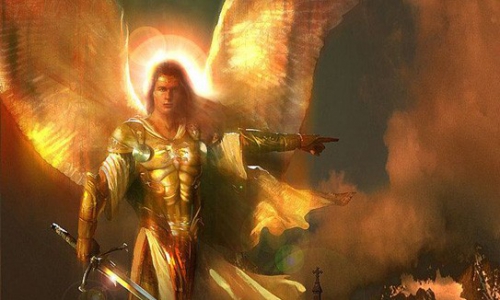“Even apart from the value of such claims as ‘there is a categorical imperative in us,’ one can still always ask: what does such a claim tell us about the man who makes it?” — Nietzsche (Beyond Good and Evil, Section 187)
 I have been reflecting of late on the concept of truth, both as a philosophical concept and as a value. Growing up, I always took the notion of truth completely for granted. “Tell the truth,” I was taught from an early age. “Don’t lie – not to your parents, your elders, and above all not to God.” Truth and falsehood was a primary duality, like light and darkness, good and evil.
I have been reflecting of late on the concept of truth, both as a philosophical concept and as a value. Growing up, I always took the notion of truth completely for granted. “Tell the truth,” I was taught from an early age. “Don’t lie – not to your parents, your elders, and above all not to God.” Truth and falsehood was a primary duality, like light and darkness, good and evil.
As I got older, I started to question some of the things I had been taught as a child. First, God. Was there really an all-powerful puppet-master in the sky, watching everything I did, said, and thought, and also controlling everything that happens in the world? I went through my adolescent rebellion against religion, which in the Western world is often caused in part by the incongruities between the Bible – especially the Old Testament – and the innate Indo-European sensibility.
In the course of being an angry young atheist, I lost God and found Nietzsche. At first I was just attracted to the sheer power of his writing, his philosophizing with a hammer. But later, I started to actually develop some understanding of his ideas. In his transvaluation of values, Nietzsche rejected not merely the god of the Bible – something most intelligent teenagers learn to do – but most of the metaphysical underpinnings of the entire Western worldview as I knew it, including the very concept of truth itself.
In spite of my admiration for Nietzsche, I never quite bought his rejection of truth and his embrace of Hassan i Sabbah’s “Nothing is true, everything is permitted.” It wasn’t that I had thought it through and developed a coherent philosophical counter-position; it was just an instinct. The argument against truth itself always seemed to me an absurdity, because to even assert that “There is no truth” is to say, implicitly, “The truth is that there is no truth.”
The Classical Value of Truth
Herodotus tells us that the ancient Persians taught their children but three things: to ride a horse, to shoot the bow-and-arrow, and to tell the truth. Among the Greeks, aletheia was a prominent or even dominant concept and goal in philosophy, especially for Plato. This carried over directly into the New Testament – which I regard as primarily an Indo-European document, in spite of the abundant Judaic themes and references, both because it is written in Greek and because the figure of Jesus Christ, in his essential characteristics and certainly in the esoteric traditions of European Christianity, has deeper roots in Indo-European solar mythology than in Jewish tradition.
In the Jewish Ten Commandments, Yahweh tells the Hebrews that they should not bear false witness in court. But Christianity re-interpreted this as a prohibition against all lying. This is because in Christianity, which for better and for worse was the religion of Europe for over a thousand years, truth is actually equated with God.
Christians often point out that Jesus is unique among religious figures and prophets because, while many men throughout history have claimed to know the truth, Jesus alone said, “I am the truth, the way, and the life.” Thus the worship of truth becomes a legitimate form of worship of God, just as with beauty and goodness. As Hans F. K. Günther notes in his Religious Attitudes of the Indo-Europeans, the Good-and-Beautiful – kaloskagathos in Greek – is an ancient Indo-European concept that pre-dates Christianity, but which was incorporated into Christian theology and to which was added the value of truth, thus becoming a trinity and a kind of analogue to the trinitarian God.
Our high valuation of truth is also related to a high valuation of loyalty. In the motto of the German SS – Mein Ehre heisst Treue, “My honor is loyalty” – the German treue is cognate with the English true, and we can see the relation in the dual meaning of true as both “not false” and “loyal,” as in “true to his people.” This loyalty also finds expression as fidelity in marriage, which is uniquely valued by Indo-Europeans, in contrast to the polygamous practices of many other cultures. For us, all of these values – truth, loyalty, faithfulness – are related, and come from the same source, like Platonic Ideals that all emanate from the Good.
Honesty
 Günther, in the same book, also notes that honor and honesty may share a common root, if not etymologically, then at least morally, for it is difficult to imagine an honorable man being fundamentally dishonest. The virtue of honesty is a corollary of the value of truth, and the history of Indo-European moral and ethical philosophy demonstrates a tradition of high regard for this virtue.
Günther, in the same book, also notes that honor and honesty may share a common root, if not etymologically, then at least morally, for it is difficult to imagine an honorable man being fundamentally dishonest. The virtue of honesty is a corollary of the value of truth, and the history of Indo-European moral and ethical philosophy demonstrates a tradition of high regard for this virtue.
The most extreme example of this is probably the philosophy of Immanuel Kant, who famously argued that if a murderer knocked at your door looking for someone whom you knew to be hiding nearby, you should not lie to the murderer. While Kant’s moral philosophy strikes most people, even fellow Indo-Europeans, as absurd, it clearly shows the degree to which we have taken seriously the moral imperative of truthfulness. It also illustrates how some of our values can be both a strength and a weakness, depending on the situation we find ourselves in.
Years ago, a female acquaintance of mine became enamored with a book called Radical Honesty by Brad Blanton, a therapist who describes himself as “white trash with a PhD.” Though I haven’t read the book, it seems to advocate a kind of Kantian extremism in truth-telling – to tell the truth, the whole truth and nothing but the truth, always at all times, no matter what. Or at least, that is how this woman interpreted it. She managed to convince some of her friends to read the book and attempt to practice “radical honesty” with her in their relations, and they were doing so when I knew them. It was a well-intentioned enterprise that was supposed to strengthen their bonds of affection and trust, though I thought they wasted an awful lot of time expressing feelings and opinions that were fleeting, unimportant, and which need not be dwelt upon, or even expressed at all.
Of course, this woman and her two friends were white, and also a bit on the hippy side. What they were attempting to do is, on the one hand, rather laughable – the sort of thing that a non-white comedian might use as material for jokes about “those wacky white people.” But on the other hand, it’s entirely consistent with our tradition of valuing truth and honesty. It’s part of the reason why, as Greg Johnson noted, “Western civilizations, white civilizations, tend to be high trust societies, whereas non-Western civilizations tend to be low trust societies.” [2]

While trust and truth apparently do not derive from the same etymological root, they most certainly share a common moral root, like honor and honesty. We trust our neighbors and kinsmen because we expect them to be honest and honorable with us, and us with them. This level of trust and honesty is difficult to maintain even in a small homogeneous group, as my hippy friends learned through experience. In a larger, heterogeneous group, it is considerably more difficult – some would say virtually impossible.
The West and the Rest
In reflecting on the concept of truth and its role as a value of Indo-European civilizations, I have come to believe that it is not, in fact, a universal value. While it is not unique to IE peoples as a concept, what is unique is the high value that we place on it. One of the mistakes that people often make is to assume that all human beings think the same way they do.
In his book about China, The Hundred-Year Marathon, Michael Pillsbury writes:
At first, it seemed impossible to me that any thinking person in China would believe that American presidents from John Tyler to Barack Obama had all somehow learned the statecraft axioms of the Warring States period and decided to apply these little-known concepts to control China. But then I realized that many in China think of these axioms as universal truths. They know America is the most powerful nation in the world, and they assume America will act as selfishly, cynically, and ruthlessly as did every hegemon in the era of the Warring States.
In contrast to these Chinese leaders who believe that Americans are as sly and sneaky as themselves, there are the American and European liberals, who believe that inside each Chinese, Arab, and African is a good little white man who is just waiting for the right dose of democracy, feminism and capitalism to bring out his full potential so he can become just like us, only darker. Indeed, some Leftist critics of Western imperialism and colonialism have addressed this ignorant and false assumption.
The tendency to assume equivalence of perspective and intention amongst peoples is perhaps universal, or at least is not limited to White peoples. But whereas the Chinese assumption of American duplicity may lead them to reject sincere gestures for want of trust (though more often than not, it’s probably just the smart position for the Chinese to take, given who runs American foreign policy), the Western assumption of universal goodwill leads to gullible and foolish policies like mass immigration, and all its concomitant problems like rising crime and social upheaval.
The Death of Truth and the Decline of the West
The high regard for truth in the Indo-European tradition is directly related to Europe’s subsequent development of science. What we call science – from the Latin word for “knowledge” – is in fact largely the accumulated knowledge of Europeans about the natural world. It is universal in its application, but not in its origin.
But this same love of truth, which motivated the Pre-Socratics in their primary investigations of phenomena, and Socrates in his endless questioning, and which reached its apotheosis in Christian doctrine, eventually became its own undoing. As scientific knowledge developed, truth ultimately came to be seen as being in conflict with religion. The Christian worship of truth as God and God as truth, incarnated as Jesus Christ, gave way to the terrible realization that truth did not, in fact, accord with Christian teachings on the nature of the world. For Nietzsche, this progression was a laughable irony – “Christianity ate itself, ha ha ha!” But he was being glib. Western man has not even begun to recover from this catastrophe. After the collapse of European Christianity in the 18th and 19th centuries, it was only a short time before even the notion of truth itself was then questioned and dismissed, firstly and most famously by Nietzsche himself. For a people with such a unique love of truth, there may well be no recovering from such a fundamental loss.
Much discourse on the Right concerns being honest about uncomfortable truths, such as racial and gender differences, or the friend-enemy distinction at the root of politics. I believe that, at its best, this is a further expression of the Indo-European spirit’s love of truth. But because the contemporary West lacks a comprehensive philosophical and spiritual framework, these little truths lack any connection to notions of higher, permanent, transcendent Truth. Unless and until the West can establish, or reestablish, that connection, it’s difficult to imagine that we will find the strength of belief that is necessary in order to survive. One begins to realize why Heidegger’s final conclusion was, “Only a god can save us.”





 del.icio.us
del.icio.us
 Digg
Digg